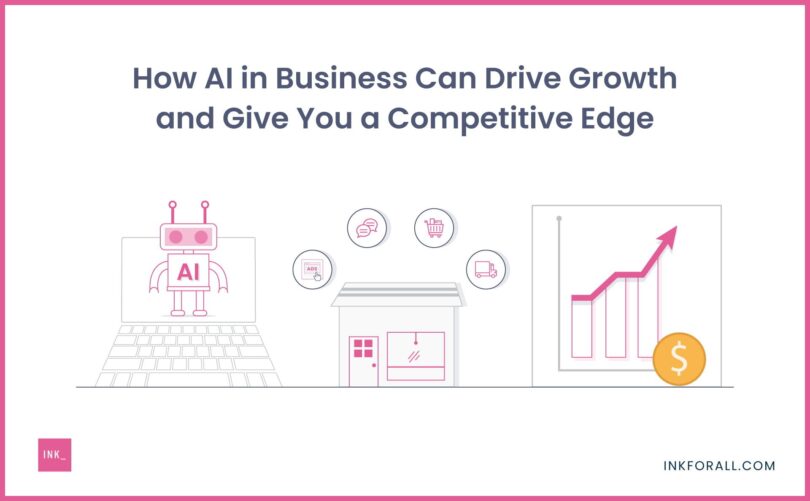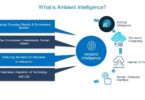Unlocking the boundless potential of education has always been a formidable challenge. But what if we told you there’s a revolutionary solution on the horizon? Brace yourself for the future of education, where artificial intelligence empowers students with personalized learning experiences like never before. With the dazzling possibilities AI-driven personalized learning offers, prepare to embark on an educational odyssey tailored exclusively for you. Welcome to the dawn of a new era in learning. Keyword: revolution.
1. Introduction to AI-Driven Personalized Learning: A Game Changer in Education
AI-driven personalized learning is revolutionizing the education landscape, empowering students with tailored educational experiences that cater to their unique needs and abilities. This groundbreaking approach utilizes artificial intelligence algorithms to analyze vast amounts of data, including student performance, learning styles, and individual preferences. By harnessing this wealth of information, AI-powered systems can generate personalized recommendations and learning paths, transforming the way students engage with educational content.
One of the key features of AI in personalized learning is its ability to adapt and evolve alongside the learners. Through continuous analysis and feedback, AI algorithms can identify areas where students are struggling and offer targeted interventions to address those challenges. This personalized approach ensures that students receive the right level of support and instruction, enabling them to progress at their own pace and maximize their potential.
Moreover, AI-driven personalized learning holds the promise of bridging educational gaps and promoting inclusivity. By catering to individual learning styles, intelligently curating content, and providing real-time feedback, AI systems can create an inclusive learning environment that caters to the diverse needs of students. This not only enhances student engagement but also helps to level the playing field and provide equal opportunities for all learners.
In the next sections, we will delve deeper into the unique features of AI in personalized learning, examine the impact of AI-based learning on student outcomes, address the challenges of data privacy, explore implementation strategies in current education systems, and finally, discuss the limitless potential of AI in shaping the future of education. Stay tuned to discover how AI-powered personalized learning is set to redefine the educational landscape for the next generation.
2. Expanding the Horizon: Unique Features of AI in Personalized Learning
As we explore the realm of AI-driven personalized learning, it becomes evident that artificial intelligence offers a myriad of unique features that revolutionize education. These features extend beyond the traditional boundaries of conventional teaching methods, opening up new possibilities for enhancing student engagement and knowledge acquisition. Here, we delve into the exclusive attributes of AI in personalized learning that make it a truly transformative force in education.
1. Adaptive Learning:
AI enables adaptive learning experiences by analyzing individual student data and tailoring instruction to suit their unique abilities, interests, and learning styles. Through ongoing assessment and feedback, AI algorithms adapt and optimize the curriculum to maximize student progress. This personalized approach helps improve retention and comprehension, fostering a deep understanding of concepts.
2. Intelligent Tutoring:
With AI-powered intelligent tutoring, students receive personalized support beyond the classroom. Advanced algorithms can identify areas where students struggle and provide targeted guidance, offering explanations, examples, and practice exercises tailored to their specific needs. This individualized assistance empowers students to grasp difficult concepts and build strong foundations.
3. Interactive Assessments:
Through AI-enabled interactive assessments, traditional exams are transformed into engaging and dynamic experiences. AI algorithms can generate varied question formats, adapt difficulty levels, and offer real-time feedback, promoting active learning and critical thinking skills. Students can benefit from immediate insights into their performance, identifying areas for improvement and reinforcing their understanding of key concepts.
3. Analysing the Impact of AI-Based Learning on Student Outcomes
AI-driven personalized learning has revolutionized the education system, and its impact on student outcomes has been a topic of much research and analysis. By analyzing the impact of AI-based learning on student outcomes, educators and researchers can gain valuable insights into the effectiveness of this innovative approach.
One of the key benefits of AI-driven personalized learning is its ability to adapt to individual student needs. By utilizing AI algorithms, educational platforms can assess a student’s strengths, weaknesses, and learning style to create a customized learning path. This personalized approach ensures that students receive tailored instruction, maximizing their learning potential and optimizing student outcomes.
Furthermore, AI-based learning platforms provide real-time feedback and assessment, enabling both students and educators to track progress and identify areas for improvement. Through continuous monitoring and analysis, educators can effectively identify gaps in knowledge and provide targeted interventions to address them. This proactive approach helps students stay on track and overcome learning obstacles, ultimately leading to improved academic performance and increased student success.
In summary, the impact of AI-based learning on student outcomes is undeniable. By offering personalized instruction, continuous assessment, and targeted interventions, AI-driven personalized learning has the potential to revolutionize education and empower the next generation of learners.
4. Overcoming Challenges: Strengthening Data Privacy in AI-Driven Learning
In the era of AI-driven personalized learning, one of the key concerns that needs to be addressed is the strengthening of data privacy. As educational institutions integrate AI technologies into their systems, there is an increasing need to ensure the privacy and security of student data. The vast amount of data collected in AI-driven learning environments raises questions about how this data is stored, accessed, and protected from potential breaches or misuse.
To overcome this challenge, it is important for educational institutions to establish robust data privacy policies and protocols. This includes implementing strong encryption methods to protect sensitive information, securing data storage systems, and regularly auditing and monitoring data access. Educators and administrators must also educate students, parents, and staff about the importance of data privacy and the actions they can take to safeguard their personal information.
Another crucial aspect of strengthening data privacy in AI-driven learning is the implementation of clear and transparent consent procedures. Students and parents should have complete control over what data is collected and how it is used, with the option to opt out if they so choose. Institutions should also be transparent about the specific purposes for which data is being collected and ensure that it is not shared with third parties without explicit consent.
By prioritizing data privacy and adopting robust measures to protect student information, educational institutions can ensure that AI-driven personalized learning remains a powerful tool for education without compromising the privacy of its users.
5. From Theory to Practice: Implementing AI in Current Education Systems
In the rapidly evolving landscape of education, the integration of AI-driven personalized learning has emerged as a pivotal game changer. Moving from theoretical discussions to practical implementations, educators are now exploring how AI can be effectively utilized in current education systems. The objective is to harness the power of artificial intelligence to enhance the learning experience and propel students towards academic success.
Implementing AI in education holds immense potential for transforming traditional teaching methods. With AI, teachers can access a vast bank of resources, enabling them to create personalized lesson plans tailored to the unique needs and learning styles of individual students. This personalized approach not only boosts student engagement but also maximizes their understanding and retention of knowledge.
Furthermore, AI-integrated education systems can provide real-time feedback to students. Through intelligent algorithms, the system can analyze student performance, identify areas of improvement, and suggest targeted learning materials. This instant feedback mechanism empowers students to track their progress and make necessary adjustments to enhance their learning journey.
To achieve successful implementation, educators need to ensure a robust infrastructure that can support AI technologies. This includes reliable access to high-speed internet, adequate computational resources, and necessary training for teachers and administrators to effectively utilize AI tools. Moreover, establishing stringent protocols and safeguards to protect data privacy is crucial in order to maintain student confidentiality and build trust in AI-driven personalized learning systems.
As we delve into the practical application of AI in education, it becomes evident that the future of learning lies in harnessing the power of technology to create a more inclusive, student-centric, and efficient educational experience. AI-driven personalized learning has the potential to revolutionize education, nurturing the next generation of learners equipped with the knowledge and skills needed to navigate the complexities of the future. Let us embark on this transformative journey together, paving the way for a brighter future for education.
6. Navigating the Future: Shaping the Next Generation Education with AI Personalized Learning
In today’s rapidly evolving world, education needs to keep pace with technological advancements to prepare students for the future. AI-driven personalized learning is revolutionizing the education landscape by tailoring education to individual needs and learning styles. By utilizing the power of artificial intelligence, educators can create a more personalized and adaptive learning experience, ensuring that each student receives the support they need to succeed.
With AI, educators can provide personalized learning paths for students, taking into account their strengths, weaknesses, and interests. This individualized approach allows students to learn at their own pace and in a way that suits their unique needs. AI algorithms can analyze vast amounts of data, including student performance and behavior, to identify patterns and offer targeted interventions, resulting in improved learning outcomes.
AI in personalized learning also opens new doors for collaborative and interactive learning. Virtual classrooms and online platforms equipped with AI tools enable students to engage in dynamic discussions, interactive simulations, and immersive learning experiences. Additionally, AI-powered virtual tutors can provide real-time feedback and guidance, assisting students in their academic progress.
As we navigate the future, AI personalized learning has the potential to transform education by fostering creativity, critical thinking, and problem-solving skills. It empowers students to take ownership of their learning journey and equips them with the necessary skills to thrive in a rapidly changing world. By harnessing the power of AI, we can shape the next generation of education, creating a brighter and more inclusive future for all learners.
In Retrospect
As we draw the curtains on our exploration of AI-driven personalized learning, it is impossible not to be captivated by the dazzling possibilities that lie ahead. The future of education has taken a seismic leap forward, propelled by the transformative power of artificial intelligence.
With every passing day, our understanding of how AI can enhance and individualize the learning experience deepens. Imagine a world where every student embarks on a learning journey uniquely tailored to their strengths, weaknesses, and interests. Gone are the days of standardized teaching that force-fits students into predetermined molds. In this new era, education becomes a vibrant tapestry of personalized pathways, seamlessly guided by the invisible hand of AI.
AI’s astounding ability to analyze colossal amounts of data goes beyond mere assessment. It unlocks a treasure trove of insights, celebrating the nuances and idiosyncrasies that make each learner truly unique. It discerns patterns, identifies gaps, and pinpoints areas needing reinforcement, enabling precise adjustments that foster growth and mastery. With a teacher’s intuition honed to perfection, AI understands the individual learner’s needs sometimes even before they do themselves.
Picture a classroom buzzing with activity, where every student is engaged in a curriculum tailored to captivate their imagination. Real-time feedback from AI-powered algorithms keeps learners on track, encouraging them to push boundaries and delve deeper into their own potential. As they progress, AI adapts, feeding knowledge with an unquenchable hunger, introducing new horizons, and kindling a thirst for lifelong learning.
Yet, as with any technological revolution, caution must accompany enthusiasm. We must constantly ponder the ethical implications and ensure AI remains a humble servant, never overshadowing the human touch. It is crucial to strike a harmonious balance, where technology amplifies and augments the role of the teacher instead of replacing it.
As the era of AI-driven personalized learning beckons, let us not forget that education remains an art—a sacred endeavor that nurtures hearts and minds. It is a tapestry woven with passion, empathy, and the belief that every learner is an opportunity waiting to be unleashed. While AI may paint vibrant brushstrokes, it is the teacher who imbues the canvas with soul.
So, as we stand at the crossroads of education’s evolution, let us embrace the future with open arms, allowing AI to unleash the full potential of each learner. For in the symphony of personalized education, minds will soar and discoveries will abound. And with every breakthrough, we will move closer to a world where education is not simply a pathway to knowledge, but a bridge to a future that knows no bounds.








